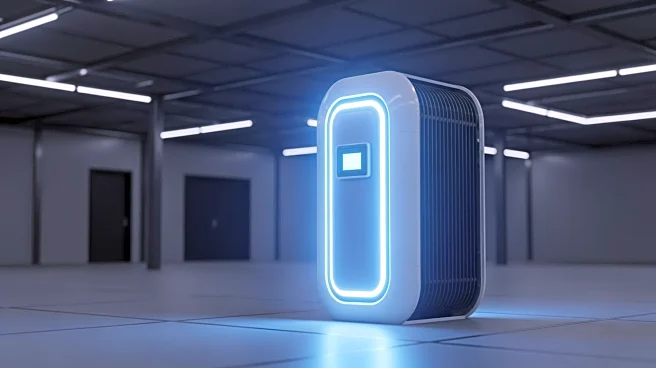What's Happening?
Good Heat, a Sydney-based climate tech startup, has successfully raised over $2 million to advance its mission of transforming industrial energy consumption. The company plans to deploy large-scale thermal
energy storage (TES) systems powered by renewable electricity to provide industrial heat at costs lower than traditional gas. This initiative is part of a larger project in Victoria, Australia, where the startup aims to develop the country's largest heat battery for a significant industrial client. The project is expected to save the factory more than $1.5 million annually on energy bills while reducing carbon emissions by replacing gas. Good Heat's business model involves selling heat rather than hardware, allowing customers to avoid upfront investments and technology risks. Each deal is secured through Heat Purchase Agreements (HPA), ensuring savings for 10-20 years.
Why It's Important?
The development of thermal energy storage systems by Good Heat represents a significant shift in industrial energy consumption, offering a sustainable alternative to gas. This approach not only reduces operational costs for manufacturers but also contributes to the reduction of carbon emissions, aligning with global efforts to combat climate change. By providing zero-carbon heat without requiring upfront investments, Good Heat is facilitating the transition to cleaner energy solutions in sectors that are traditionally difficult to decarbonize. The successful funding round, led by Understorey Ventures and supported by Investible and 2100VC, underscores the growing interest and potential profitability of renewable energy technologies in the industrial sector.
What's Next?
Good Heat plans to continue expanding its thermal energy storage projects across Australia and potentially into international markets. The company aims to demonstrate the bankability and profitability of TES systems, encouraging wider adoption in industries that rely heavily on heat production. As the project in Victoria progresses, it may serve as a model for other factories looking to reduce energy costs and carbon emissions. The involvement of prominent investors suggests that further funding rounds could be anticipated, supporting the scaling of Good Heat's operations and technology deployment.
Beyond the Headlines
The introduction of thermal energy storage systems by Good Heat could have broader implications for the energy sector, potentially influencing policy decisions related to industrial energy consumption and carbon reduction strategies. The company's approach to selling heat rather than hardware may inspire similar business models in other sectors, promoting innovation in renewable energy solutions. Additionally, the success of Good Heat's projects could encourage more startups to explore sustainable energy technologies, contributing to a more diversified and resilient energy landscape.










